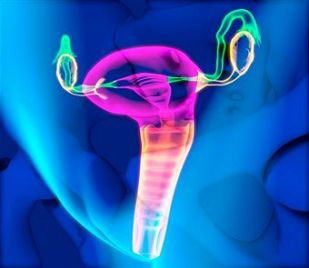Interstitial cystitis is a chronic condition. The interstitial cystitis symptoms include bladder pain, uncomfortable bladder pressure and in some cases you could experience pain in your pelvis. This could range from a mild burning to severe pain.
Although the condition could affect children and men as well, usually women are the most affected. The disease could have a long lasting effect on the overall quality of life of the patients.
 The signs of interstitial cystitis vary in case of every person. If you have the illness, the symptoms could also vary over time.
The signs of interstitial cystitis vary in case of every person. If you have the illness, the symptoms could also vary over time.
There are some triggers that could change the signs, such as menstruation, stress, maintaining a sitting position for a long period of time, sexual activity and exercise.
The interstitial cystitis symptoms, as it has been mentioned before, include pain in your pelvis.
In case of women it is also possible to experience pain between the vagina and the anus and between the scrotum and anus in case of men.
Another sign of interstitial cystitis is chronic pelvic pain. Also because of the illness you might feel a persistent need to urinate, even though it is just an urge, not a real need. This is why you will have to urinate more frequently, although in the majority of the cases the amount will be quite small. Those people who have severe illness could urinate even 60 times a day.
Another serious one of the interstitial cystitis symptoms is pain during sexual intercourse. In case of some people who have been affected by the illness experience as signs of interstitial cystitis only pain, while other people only feel a kind of discomfort as well as frequent and urgent urination. In case of the more severe illnesses, people experience both of the symptoms.
Based on the symptoms of interstitial cystitis it could be easy to mistake the illness with chronic urinary tract infection, but in this case the urine samples are free of bacteria. Still you should know that the situation could get worse in case the person affected by interstitial cystitis also gets infected with chronic urinary tract infection.
In case you experience any of the mentioned symptoms of interstitial cystitis you should contact your doctor before your condition gets worse.
When you go to the doctor he could use a questionnaire in order to assess your symptoms of interstitial cystitis. Also he could ask you to keep a diary for a few days of how often you urinate and how much and what kinds of fluids do you consume.
It might be a good idea to be prepared before you visit the doctor, and write down the interstitial cystitis symptoms that you experience. You should include every symptom, even if you don’t think that they are related. It could be useful for the doctor if you would write down the medication and the vitamin supplements that you are taking.
It doesn’t matter how common you think they are. Also, in case you don’t feel comfortable going alone, you should take someone with you.






